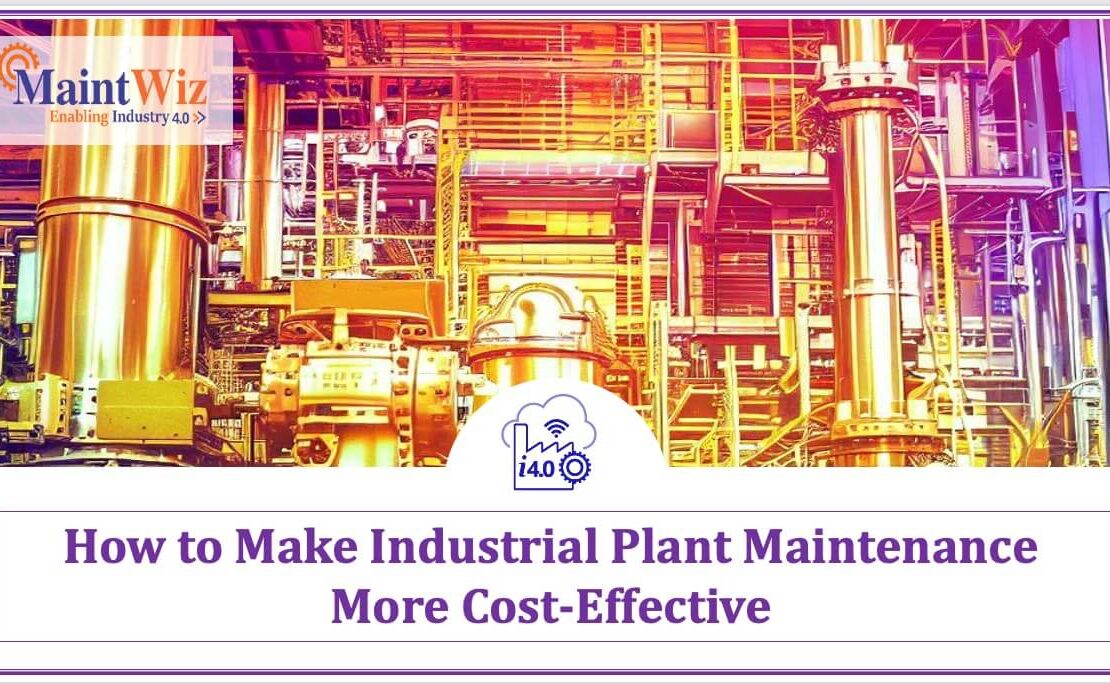
Table of Contents
ToggleIntroduction to Industrial Plant Maintenance
Effective plant maintenance plays a vital role in the manufacturing industry. It ensures the smooth operation of equipment, minimizes downtime, and maximizes productivity. However, maintaining industrial plants comes with its own set of challenges.
Importance of Effective Plant Maintenance
Effective plant maintenance is crucial for the manufacturing industry due to the following reasons:
- Reduces unplanned downtime, saving costs and improving productivity
- Prolongs the lifespan of equipment, reducing the need for costly replacements
- Enhances safety and reduces the risk of accidents in the workplace
- Ensures compliance with industry regulations and standards
- Boosts overall operational efficiency and customer satisfaction
Challenges Faced in Maintaining Industrial Plants
Maintaining industrial plants can be challenging due to various factors:
- Aging equipment requiring specialized maintenance
- Complexity of managing a large number of assets
- Tight production schedules leaving limited time for maintenance activities
- Difficulty in identifying critical maintenance requirements
- Lack of skilled workforce and training programs
Benefits of Cost-Effective Plant Maintenance
Implementing cost-effective plant maintenance strategies brings several benefits to the manufacturing industry:
- Reduced maintenance costs without compromising reliability
- Improved equipment uptime and production efficiency
- Enhanced asset performance and lifespan
- Optimized resource allocation and minimized waste
- Increased overall profitability and competitive advantage
Developing a Cost-Effective Plant Maintenance Strategy
To make industrial plant maintenance more cost-effective, it’s important to develop a comprehensive strategy. Here are the key steps involved:
- Conducting a Thorough Plant Maintenance Audit
A maintenance audit helps identify existing issues and areas for improvement. It involves assessing the current maintenance practices, evaluating the condition of assets, and analyzing historical data. The audit provides valuable insights to develop a targeted maintenance strategy.
- Identifying Critical Assets and Their Maintenance Requirements
Not all assets have the same importance or maintenance needs. By identifying critical assets, maintenance efforts can be focused where they matter the most. This ensures that resources are allocated efficiently and maintenance activities are prioritized based on risk and impact.
- Prioritizing Maintenance Activities Based on Risk and Impact
A risk-based approach helps prioritize maintenance tasks. By assessing the potential consequences of equipment failure and the likelihood of occurrence, maintenance activities can be planned and executed accordingly. This prevents unplanned downtime and reduces overall maintenance costs.
- Implementing Preventive and Predictive Maintenance Strategies
Preventive maintenance involves regularly scheduled inspections, cleaning, and replacement of parts to prevent equipment failures. Predictive maintenance, on the other hand, utilizes advanced technologies and condition monitoring techniques to predict equipment failures and perform maintenance only when needed. These strategies minimize downtime and extend the lifespan of assets.
Optimizing Maintenance Planning and Scheduling
Efficient maintenance planning and scheduling are crucial for cost-effective plant maintenance. Consider the following:
Creating a Well-Structured Maintenance Schedule
A well-structured maintenance schedule ensures that maintenance activities are organized and executed systematically. It helps avoid conflicting schedules, reduces downtime, and optimizes resource utilization.
Utilizing a Computerized Maintenance Management System (CMMS)
A CMMS is a powerful tool that enables effective maintenance planning, scheduling, and asset management. It centralizes maintenance data, streamlines work order management, tracks asset history, and provides valuable insights for decision-making.
Implementing Effective Work Order Management Processes
An efficient work order management process ensures that maintenance tasks are assigned, tracked, and completed in a timely manner. It involves clear communication, proper documentation, and effective collaboration among maintenance teams.
Streamlining Maintenance Tasks and Reducing Downtime
Streamlining maintenance tasks minimizes unnecessary downtime and optimizes workforce productivity. By optimizing the order of tasks, reducing setup time, and improving workflow, maintenance processes become more efficient and cost-effective.
Conclusion
Cost-effective plant maintenance is essential for the success of the manufacturing industry. By developing a comprehensive maintenance strategy, optimizing planning and scheduling, leveraging advanced technologies, and fostering a culture of continuous improvement, organizations can enhance their operational efficiency, reduce costs, and achieve long-term sustainability.
Key Takeaways:
- Effective plant maintenance reduces downtime and enhances productivity.
- Develop a cost-effective maintenance strategy by conducting audits and identifying critical assets.
- Optimize maintenance planning and scheduling with a CMMS and streamlined work order management.
- Efficient spare parts management and condition monitoring techniques help minimize downtime.
- Invest in workforce skills and training, leverage data and analytics, and promote energy efficiency and sustainability.
- Outsourcing and continuous improvement contribute to long-term success in plant maintenance.
Call to Action:
To learn more about optimizing industrial plant maintenance and achieving cost-effectiveness, contact our experts today.

Jai Balachandran is an industry expert with a proven track record in driving digital transformation and Industry 4.0 technologies. With a rich background in asset management, plant maintenance, connected systems, TPM and reliability initiatives, he brings unparalleled insight and delivery excellence to Plant Operations.




